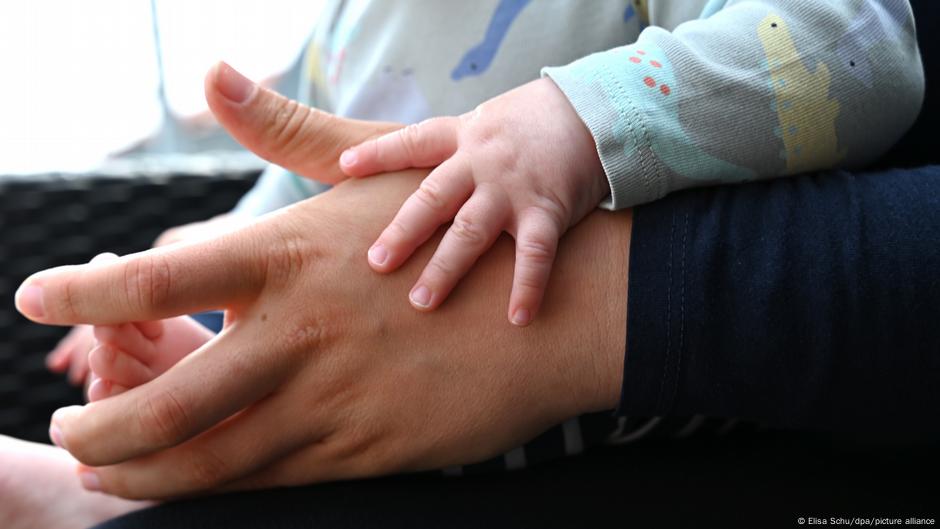A recent study validates what numerous parents have long understood: Kids bring purpose to our lives. However, this comes at a cost, particularly for mothers, as their overall happiness tends to decrease. Nevertheless, the impact varies across different nations.
I recall hearing someone describe having a child as being akin to outsourcing a crucial organ that operates independently and even scales trees. Raising a child is both captivatingly significant and simultaneously fraught with worry and fatigue.
A recent study addressing parental contentment sheds light on this paradox. It reveals that individuals with children perceive their lives as more meaningful compared to those without kids. Nonetheless, parents do not report higher overall life satisfaction. In fact, they frequently express lower levels of happiness.
Tolong support kita ya,
Cukup klik ini aja: https://indonesiacrowd.com/support-bonus/
Here are the findings presented by sociologists Marita Jacob and Ansgar Hudde from the University of Cologne, featured in the current issue of the specialized journal “Journal of Marriage and Family.” Their research relied on information gathered from the European Social Survey, encompassing over 43,000 participants across 30 nations.
Jacob and Hudde found that irrespective of their national origin or social standing, both mothers and fathers believed their lives held greater significance.
However, this did not apply to their contentment with their lives. Their level of satisfaction largely relied not just on the respondent’s living conditions, but
as well as family policies in their nation.
The discrepancy was related to gender: mothers reported lower life satisfaction compared to fathers.
Scandinavia: Minimal distinction between parents and those without children
Marita Jacob, a sociology professor from the University of Cologne, states that parents facing difficult circumstances report lower levels of satisfaction. These challenges could include being a lone parent, being younger, or having limited education. It may not be shocking to assume this, you might say.
they are less satisfied.
However, Jacob argues that this outcome is not unavoidable. She points out that in Nordic nations, disparities among various societal segments are significantly more subtle. Additionally, she notes that the gap in contentment levels between those with children and those without is considerably narrower in such countries compared to regions like Central and Eastern Europe.
Child care services, economic assistance for parents, maternity and paternity leaves — such family policies
functions quite effectively in the Nordic nations,
Jacob says, “I believe these actions affect everyone collectively, which means children aren’t just considered an issue for their parents; they become a shared concern of the entire community.”
Jacob points out that this mindset is evident in Scandinavian business practices as well. According to her, it’s quite common there for parents to begin and end their workday earlier. Additionally, crucial meetings tend to be arranged with consideration for the pace of family life.
Higher levels of gender equality result in increased satisfaction.
In Germany, household duties and family care are predominantly managed by women. On average, one out of every two women handles these responsibilities.
cuts down her work hours to take care of her kids.
Slightly less than 6% of German men working part-time cite family reasons as their primary motivation. Additionally, most instances of taking parental leave in Germany are undertaken by fathers.
A contributing reason for higher parental satisfaction in Finland compared to Germany could be greater gender equality. The Nordic nations, including Finland, have equal pay policies which lead to a narrower gender wage disparity. This situation makes women more content, according to Jacob. Additionally, she points out that these conditions positively influence partnerships, thereby benefiting families as well.
A child is not an endeavor one can control entirely alone.
Marita Jacob says that when her children were small, she banded together with other parents. “We would each always pick up several children from the kindergarten.”
Those with young children understand that an additional 30 minutes, or even a shortfall of 30 minutes, can entirely dictate whether the day concludes in a mental health crisis. For this reason, Jacob suggests that parents ought to provide mutual assistance more frequently and be receptive to accepting help when it’s extended to them.
Children hold significance — not merely because of their role as
counterbalance our ageing society,
This wouldn’t be capable of taking care of all its elderly population without a younger demographic. As Marita Jacob emphasizes, “Children possess inherent worth. They infuse society with vitality, fresh perspectives, and advancements.”
That is why the sociologist thinks the majority of this phenomenon can be attributed to
The accountability for this rests with the policymakers.
“Kids should not become their parents’ burden due to inconsistent childcare services or issues within schools,” she states. “The upbringing of children is a collective duty for all members of society.”
The translation of this article was originally in German.
Author: Julia Vergin






